How Behavioral Therapy Helps Improve Social Skills and Relationships
Unlocking Social Potential: The Power of Behavioral Therapy

The Role of Behavioral Therapy in Social Development
Behavioral therapy has become a cornerstone in enhancing social skills and fostering meaningful relationships across diverse populations. With various approaches tailored to individual needs, therapies such as cognitive-behavioral therapy (CBT), social skills training (SST), and applied behavior analysis (ABA) have demonstrated significant benefits in helping individuals improve their social competence, manage anxiety, and build healthier relationships. This article explores how these therapies work, the strategies they employ, and the substantial evidence supporting their role in social development.
The Evidence Supporting Behavioral Therapy in Social Development
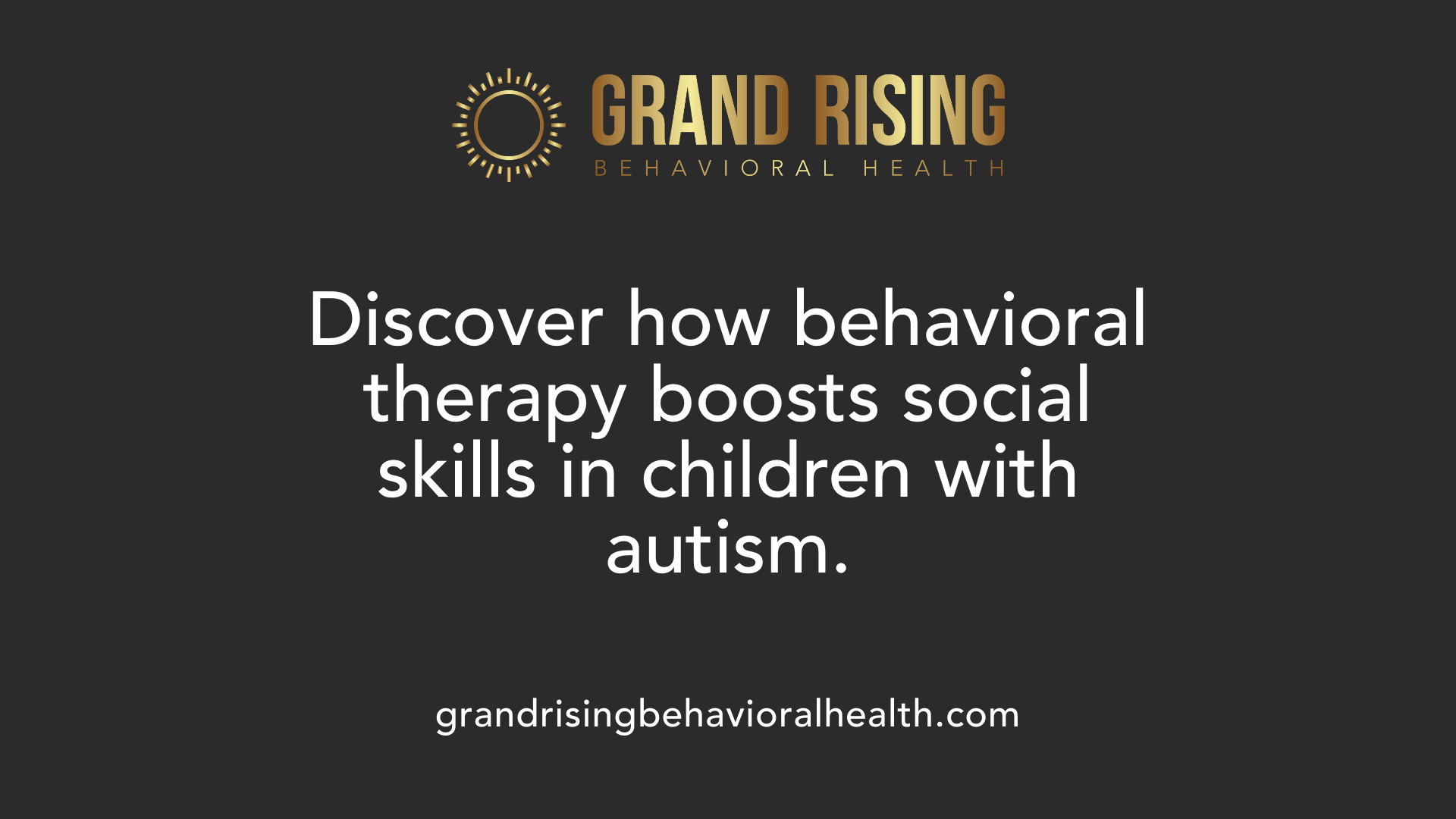
Meta-analyses of RCTs evaluating CBT in children with autism
Recent research, including a comprehensive meta-analysis of seven randomized controlled trials, indicates that cognitive-behavioral therapy (CBT) significantly improves social skills in children with autism spectrum disorder (ASD). This analysis, which included 214 children, found that CBT led to moderate improvements in social responsiveness, as measured by the Social Responsiveness Scale (SRS). The effect was more pronounced based on parent reports than teacher reports, suggesting variability in observed outcomes across settings.
The results support that CBT not only helps manage anxiety symptoms but also addresses social skill deficits, making it a valuable multifaceted intervention for children with ASD.
How CBT Enhances Social Relationships and Emotional Regulation
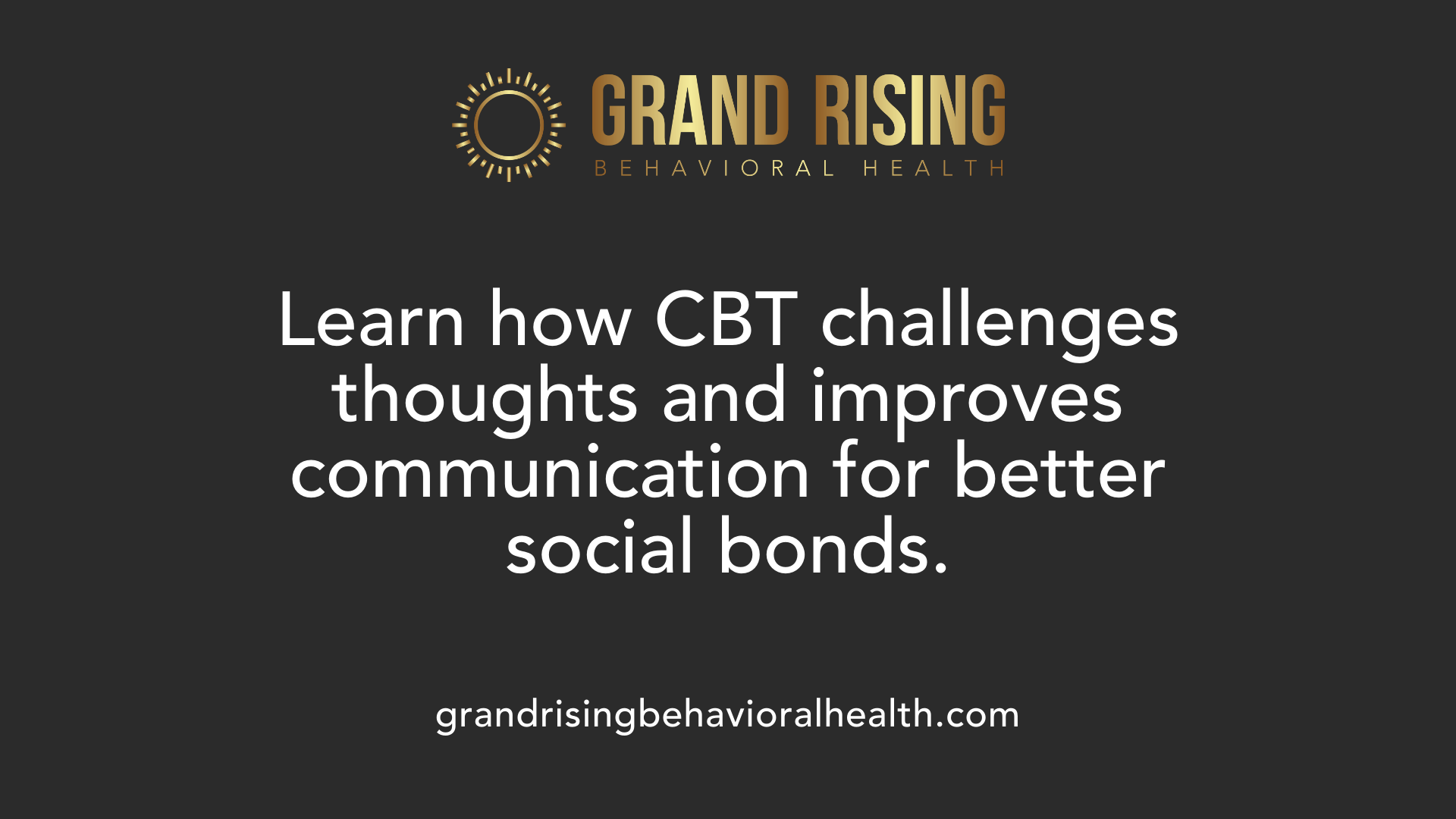
Challenging unhelpful thoughts impacting social interactions
Cognitive-behavioral therapy (CBT) helps children and adolescents identify and challenge negative or unrealistic thoughts that can interfere with social interactions. For instance, a young person might believe, "Everyone will think I’m awkward," which can lead to social avoidance. CBT encourages replacing such thoughts with more realistic ones, like "Many people feel nervous in new situations, and I can handle it." This shift can reduce anxiety and improve confidence in social settings.
Developing communication and assertiveness skills
CBT also focuses on building essential communication skills, including assertiveness. Through guided practice, children learn how to express their opinions, ask for help, and set boundaries respectfully. Techniques such as role-playing enable individuals to rehearse and reinforce these skills in a safe environment. Strengthening communication fosters better relationships and supports positive social engagement.
Using cognitive restructuring and exposure techniques
A core component of CBT involves cognitive restructuring, which helps modify negative thought patterns. Paired with exposure techniques—gradually facing feared social situations—this approach reduces avoidance behaviors. For example, a teenager might practice speaking up in class or initiating conversations with peers. Over time, these exposures can diminish social anxiety and promote greater ease in social interactions.
Improving emotional awareness and empathy
CBT also enhances emotional regulation by increasing awareness of one’s feelings and understanding others’ perspectives. Recognizing emotions like anger or frustration allows children to manage these reactions better, avoiding conflicts. Additionally, by learning empathy, children can interpret social cues more accurately, leading to more compassionate and effective communication.
| Technique | Purpose | Example | |--------------------------|------------------------------------------------|---------------------------------|| | Thought challenging | Replace negative thoughts with realistic ones |
Behavioral Strategies to Promote Social Skills and Interpersonal Competencies
Use of social stories, role-playing, modeling, positive reinforcement
Social stories are simple, illustrative descriptions that prepare children for social situations by modeling expected behaviors. Role-playing allows children and adolescents to practice social interactions in a safe, controlled environment, helping them develop confidence and understanding.
Modeling involves demonstrating appropriate social behaviors for children to imitate, often used by therapists, teachers, or parents. Positive reinforcement, such as praise or rewards, encourages children to replicate desirable social behaviors, making learning more engaging and effective.
Techniques for breaking down complex skills and providing feedback
Teaching complex social skills requires breaking them into smaller, manageable steps. For example, learning to initiate a conversation might start with making eye contact, then saying hello, and gradually progressing.
Providing corrective feedback helps reinforce proper behaviors. Therapists give specific examples and ask questions to guide children toward better social interactions, ensuring they understand and can practice the skills successfully.
Homework and technology tools for outside practice
Outside therapy sessions, children and adolescents can practice social skills through homework assignments. These might include practicing greetings with family or friends or recording social interactions.
Technology tools, such as social skills apps and online role-playing games, offer additional opportunities for practice. These resources can help reinforce skills learned during therapy and increase motivation.
Individualized interventions and goal-setting
Effective social skills training is tailored to each child's or adolescent’s unique needs. Therapists assess specific deficits and set clear, achievable goals.
Interventions are adjusted as skills improve, with ongoing monitoring to ensure progress. Setting measurable goals helps keep therapy focused and provides motivation for both the individual and their caregivers.
| Strategy Type | Techniques Used | Benefits |
|---|---|---|
| Behavioral modeling & reinforcement | Demonstration, praise | Encourages imitation, boosts confidence |
| Breaking down skills | Step-by-step teaching | Simplifies learning, improves mastery |
| Feedback & homework | Corrective feedback, practice assignments | Reinforces skills, promotes generalization |
| Technology tools | Apps, online role-play | Engages children, offers flexible practice |
Techniques in Behavioral Therapy to Foster Communication and Relationships
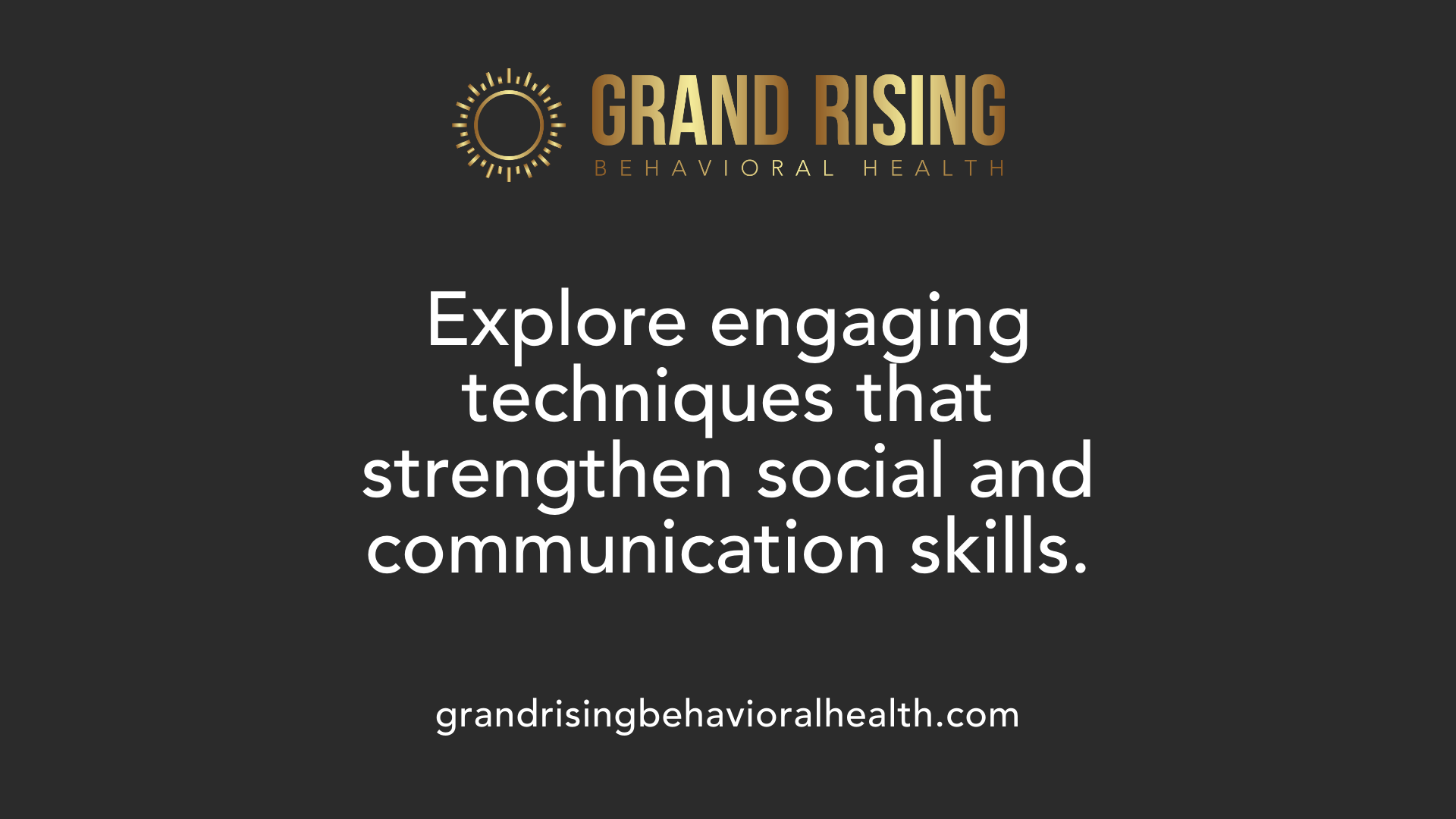
Modeling, behavioral rehearsal, social scripts
Behavioral therapy employs a variety of techniques to help children and adolescents improve their social skills. One foundational method is modeling, where therapists demonstrate positive social behaviors for children to imitate. This helps children see effective ways to communicate and interact.
Behavioral rehearsal, often in the form of role-playing, allows children to practice social scenarios in a safe, controlled environment. Children can practice greetings, sharing, or responding to social cues, gaining confidence and reducing anxiety.
Social scripts are used to teach children specific dialogues or responses for common social situations. These scripts serve as guides that children can adapt, helping them feel more prepared for real-world interactions.
Instructional methods and visual supports
Therapists often use instruction and modeling to break down complex social skills into manageable parts. Visual supports, such as picture cards or social stories, provide visual cues that reinforce learning.
For example, social stories depict step-by-step ways to handle common social interactions, making abstract concepts more concrete. Visual supports are especially useful for children with autism or developmental disabilities.
Corrective feedback, positive reinforcement, homework tasks
Providing corrective feedback helps children understand what they did well and what can improve. It involves gentle correction and guiding questions to reinforce appropriate behavior.
Positive reinforcement, such as praise or small rewards, encourages children to continue practicing desired behaviors. These rewards help motivate children and build intrinsic confidence.
Homework tasks extend learning outside the therapy setting. Children may be assigned activities like practicing greeting classmates or sharing toys, promoting generalization of skills.
Use of games, apps, and social scenarios for real-world skills
Engaging children through games and interactive apps makes learning social skills enjoyable and effective. Many tools simulate real-life situations, allowing children to practice communication in a fun context.
Social scenarios, either through role-playing or digital media, enable children to experience different interactions and develop problem-solving abilities. These methods help bridge the gap between therapy and everyday life.
In summary, combining modeling, rehearsal, visual supports, feedback, and technology creates a comprehensive approach to improving social skills, building confidence, and fostering better relationships for children and adolescents.
Role of SST and Play Therapy in Special Populations
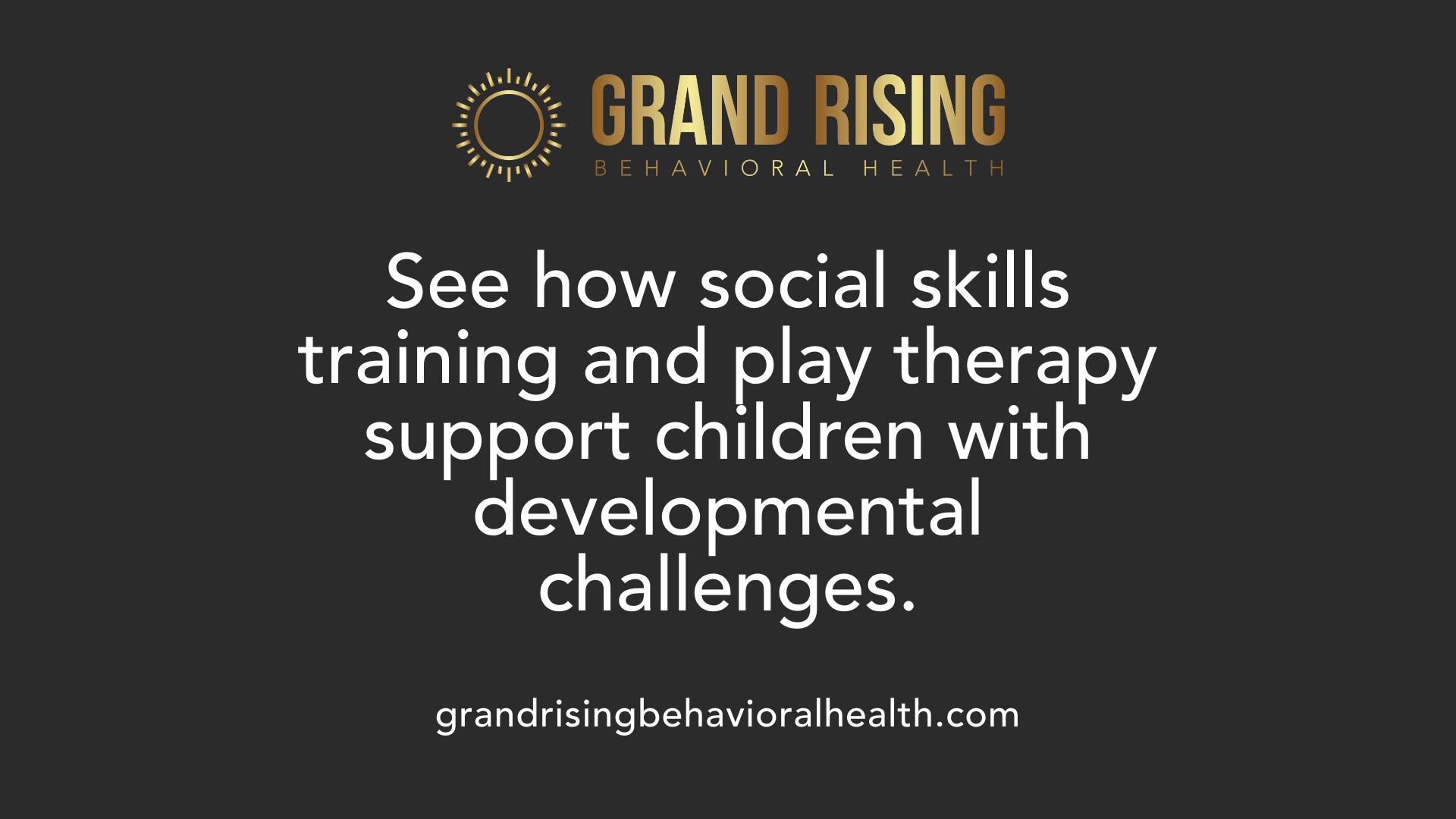
What are the benefits of social skills training and play therapy for individuals with social anxiety, autism, and ADHD?
Social skills training (SST) and play therapy offer significant advantages for children and adolescents facing developmental and mental health challenges such as social anxiety disorder (SAD), autism spectrum disorder (ASD), and attention deficit hyperactivity disorder (ADHD). SST helps these individuals develop essential interpersonal skills like effective communication, cooperation, and understanding social norms. For children with autism, research demonstrates that CBT—often integrated with SST—can improve social responsiveness, leading to better peer interactions.
Play therapy creates a supportive, low-pressure environment where children can explore emotions, practice social interactions, and build coping skills through engaging activities. It uses structured play to teach sharing, turn-taking, and emotional expression, which are crucial for emotional regulation and social competence.
How do play-based therapies provide a gentle way to develop social and emotional skills?
Play-based therapies are particularly effective because they integrate learning within natural, enjoyable activities. These approaches help children feel relaxed and motivated while practicing communication and social skills. For example, acting out scenarios or engaging in creative play allows children to simulate social situations, helping them understand facial expressions, body language, and conversation cues.
Playing also offers a safe space for children to process complex emotions and build resilience. These therapies incorporate activities that target emotional recognition, mindfulness, and self-regulation, which are vital for managing anxiety and social fears.
How do these therapies support the development of social and emotional competence?
Through consistent engagement in SST and play therapy, children develop vital social and emotional skills such as empathy, problem-solving, and self-awareness. Supervised activities teach children how to interpret others’ feelings, respond appropriately, and sustain positive relationships.
Positive reinforcement and feedback during therapy sessions foster self-esteem and confidence. Over time, children learn to transfer skills learned in therapy to real-world environments, improving their social integration and reducing behaviors like aggression or defiance.
How do engaging activities help reduce problematic behaviors?
Activities that are fun and rewarding, such as cooperative games or role-playing, serve as effective outlets for frustration and impulsivity. They reinforce positive behaviors and provide natural opportunities for children to practice self-control and negotiation.
By focusing on success and mastery within a playful context, children often experience decreased anxiety and hostility. This approach helps diminish problematic behaviors and encourages healthier interactions, paving the way for improved emotional well-being.
| Approach | Focus Area | Benefits | Techniques Used |
|---|---|---|---|
| Social Skills Training (SST) | Communication, cooperation, social norms | Better peer relationships, increased confidence | Role-playing, modeling, praise, homework |
| Play Therapy | Emotional expression, social interaction | Reduced anxiety, improved emotional regulation | Acting out scenarios, creative activities, mindfulness |
ABA Therapy’s Impact on Social and Communication Skills
How does ABA therapy provide individualized interventions for children with autism?
Applied Behavior Analysis (ABA) therapy is tailored to each child's unique needs, focusing on specific social and communication deficits common in autism spectrum disorder (ASD). Therapists assess individual strengths and challenges, creating personalized programs that target areas such as social interaction, language, and emotional understanding.
Conclusion: Embracing Behavioral Therapy for Better Social Connections
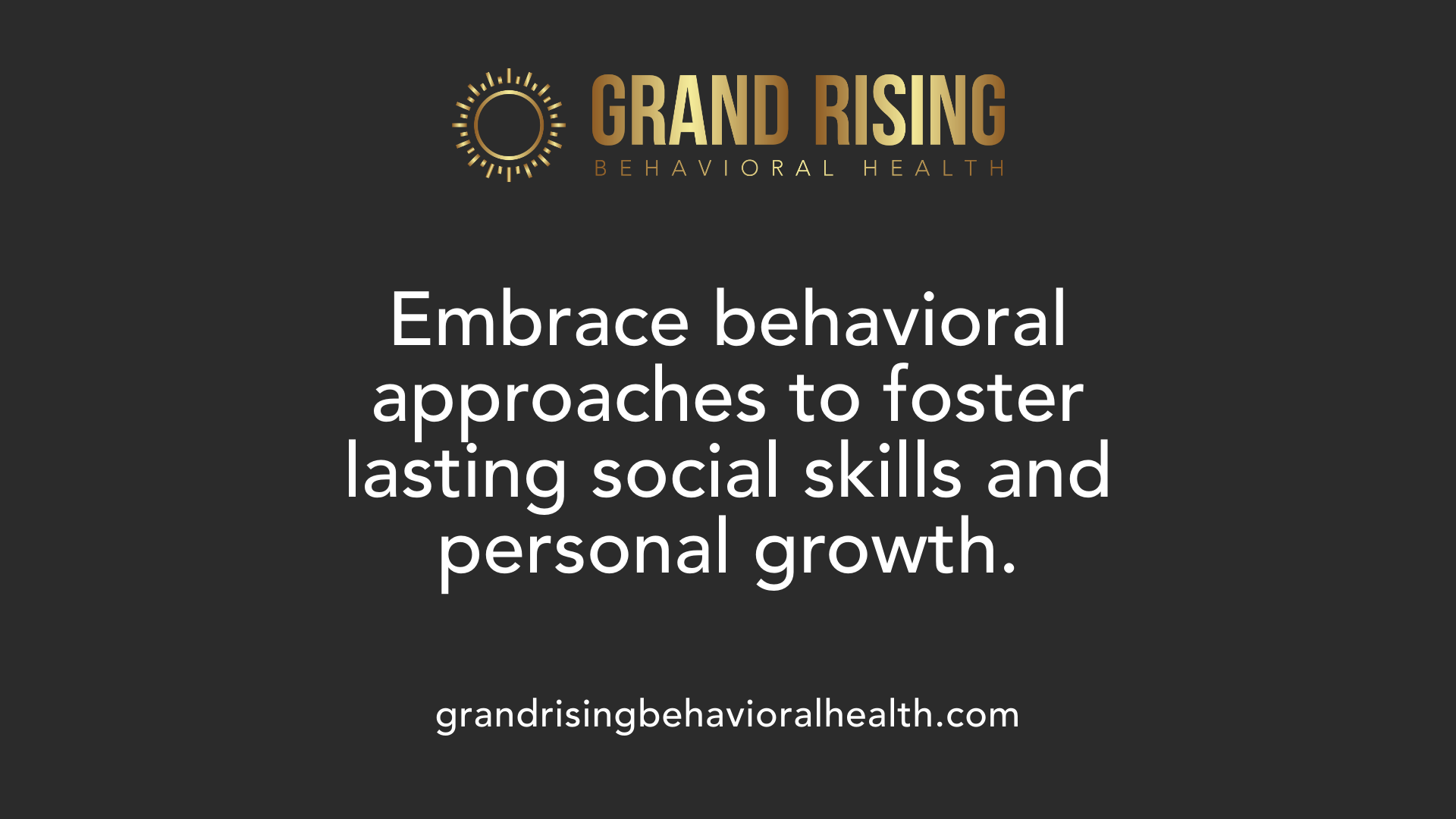 Behavioral therapies like CBT, SST, and play-based interventions have shown significant benefits in improving social skills and reducing challenging behaviors among children and adolescents. Evidence indicates that combining interventions, especially CBT with SST, accelerates positive outcomes, helping young individuals develop better emotion regulation, social understanding, and problem-solving abilities.
Behavioral therapies like CBT, SST, and play-based interventions have shown significant benefits in improving social skills and reducing challenging behaviors among children and adolescents. Evidence indicates that combining interventions, especially CBT with SST, accelerates positive outcomes, helping young individuals develop better emotion regulation, social understanding, and problem-solving abilities.
Tailored approaches—considering each child's specific needs—and collaborative efforts among therapists, teachers, and caregivers are essential. These partnerships enhance the effectiveness of therapy, ensuring consistency and support across different environments.
Long-term, improved social skills foster stronger relationships, greater self-esteem, and greater independence. These skills not only help children navigate social situations more comfortably but also support ongoing personal development and emotional well-being, laying a foundation for healthier social learning and interactions throughout life.
Fostering Lasting Social Growth Through Evidence-Based Practices
Behavioral therapy, encompassing CBT, SST, and ABA, offers a scientifically supported, versatile, and effective approach to improving social skills and strengthening relationships. By combining structured techniques, behavioral reinforcement, emotional regulation strategies, and engaging activities like play-based interventions, these therapies empower individuals to overcome social challenges, enhance communication, and build meaningful connections that enrich their lives.
References
- Effectiveness of cognitive behavioural therapy and social skills ...
- Social Skills Training: Definition, Uses, and Tips - Verywell Mind
- Behavioral Therapy for Children: How Play & Social Skills Help
- Cognitive behavioral therapy - Mayo Clinic
- How ABA Therapy Improves Social Skills in Children With Autism
- Using CBT to Address Social Anxiety and Improve Social Skills
- Behavioral Therapy - StatPearls - NCBI Bookshelf
- Using Behavioral Therapy to Improve Social Skills in Children
- Improve Your Social Skills with Professional Therapy
- Cognitive behaviour therapy (CBT) - Better Health Channel
More Resources
A team ready to start your journey.
Get in touch — today.
We are a safe space – a haven for exceptional individuals to receive discreet, personalized, in-person treatment and care.
.avif)










